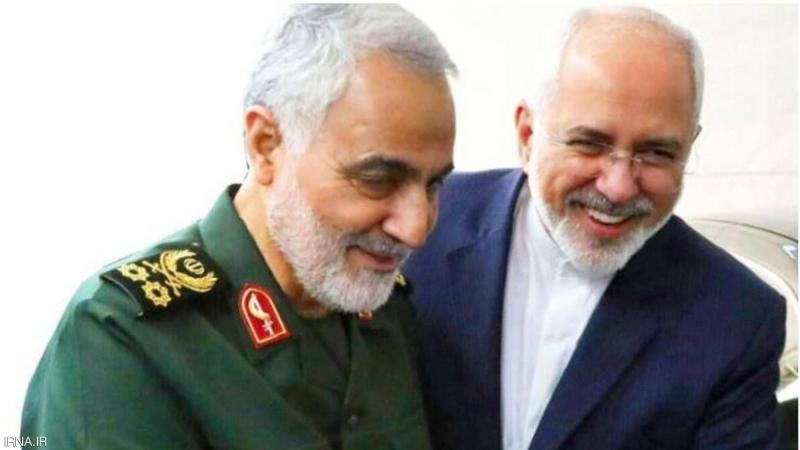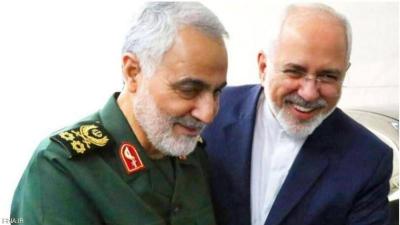Controversial statements made by Iranian Foreign Minister Mohammad Javad Zarif have reignited several questions regarding the realities of power dynamics in Iran, regardless of any "official" denial of the leaked remarks. These statements were expected to be released after the end of the current Iranian government's term, according to reports of an agreement between Zarif and the interlocutor. However, multiple details about the relationship between the head of Iranian diplomacy and the Revolutionary Guard transcended the sensitive timing and were leaked in an audio recording obtained by an opposition Iranian channel.
In the leaked conversation, Zarif appeared very upset about what he described as the extensive interference of former Quds Force commander Qassem Soleimani in Iranian diplomatic affairs. He stated that almost every time he went to negotiate, Soleimani imposed his conditions and directed that specific points be taken into account. Zarif admitted that he sacrificed diplomacy in favor of the "battlefield," adding that he could never convince Soleimani of his requests, citing an instance when he asked him not to use civilian airspace in Syria, which Soleimani rejected according to the leak.
Zarif continued discussing Soleimani's influence, saying in the recording that former U.S. Secretary of State John Kerry warned him that flights of the Iranian national airline to Syria had increased sixfold since U.S. sanctions were lifted. Regarding his resignation after Syrian President Bashar al-Assad's visit to Iran about four years ago, Zarif said he had arranged the visit with Soleimani, but when the Syrian guest arrived in Iran, he was not informed of it.
In part of the audio recording, Zarif mentioned that after finalizing the nuclear deal in 2015 and up to its implementation day, events occurred against the agreement that began with Soleimani traveling to Moscow without coordinating with the Foreign Ministry and ended with the detention of an American ship and the attack on the Saudi embassy in Tehran. For its part, the Iranian Foreign Ministry denied the authenticity of the leak, stating that it was edited, but its denial does not obscure the apparent divisions plaguing the pillars of the Iranian regime.




